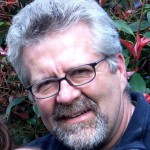To Serve the Common Good
To the left of my desk is a small piece of paper that quietly proclaims something quite profound:
The vision of the
Center for Servant Leadership is that
All with whom we are engaged
Will know who they are
Why they are here, and
How they are called to live
To serve the common good.
Although only forty words, this is pretty grand substance to live into each and every day. Our work is focused on student development, particularly the part of the College’s mission statement that entreats us “to prepare them [students] for fulfilling lives of leadership and service in society.” But we are also invested in faculty and staff of the College, and partnerships with alumni, congregations, the community (how large is that?), the corporate world, non-profits. Who have I left out?
And we haven’t yet got to the heart of the matter: we want all students to find themselves at Gustavus: who they are in terms of interests, skills, values, and personal characteristics, and to identify the career that fits best for them at this stage of their lives. But it doesn’t stop there. We believe that we are called to something larger than ourselves, and the ultimate “why” of our work – to serve the common good, in whatever way one’s gifts and talents serve humanity to the utmost.
According to author Simon Sinek, it is more convenient to focus first on “what” we should do, and then “how” we will do it. Our vision, as he and others suggest, focuses on the “why.” Why create a Center for Servant Leadership in the first place?
Our goal is to provide students with an integrated experience, one that helps them to imagine the connection among career, service, vocation, and leadership. We are not alone in this endeavor, on campus and beyond. That is the “all with whom we are engaged” part of our vision statement. Our vision is a grand one, and requires the best, collaborative work of all of our partners.
We’re incredibly fortunate to have two other partners in this endeavor. Larry Spears has provided valuable perspective on how servant leadership can inform this important work. We have gone from “What is servant leadership?” to “How does the lens of servant leadership inform and enhance all of the work that we do?” I am grateful for Larry’s thoughtful guidance, and look forward to our partnership in January 2013, when he and I will teach an Interim course on Servant Leadership for Gustavus students.
We have also benefited greatly from the insight and wisdom of alumnus, thinking partner, celebrated author, and visionary, Richard Leider. Richard’s focus on integration has helped us to shape this new and exciting program in the context of a comprehensive well-being model, which I’m excited to say, continues to move ahead on campus.
It is a joy to work with bright, talented, and engaged young adults, collaborating with a dedicated and optimistic staff that “gets it.” They “get” that this enterprise is complex, sometimes difficult, and often humbling. But it is always fun, and incredibly rewarding.
When I feel overwhelmed with what needs to be done, I turn from my keyboard and computer screen, and glance to my left at our vision statement. I am reminded of the “why” of our work, and it makes my heart sing.
My hope is that what we offer in this journal will provoke a thought, inspire your own work, or encourage you to tell us how you or your organization is developing leaders to serve the common good.
Thanks for joining us in this most essential work.
About the Author
JEFF STOCCO assumed his role as Director of the Center for Servant Leadership in June, 2011. For two years, he served as interim Dean of Students and Vice President for Student Affairs. He derives great satisfaction in seeing students grow and develop, and, to that end, he has been involved in student life programs during his 24 years at Gustavus. Jeff served most of his Gustavus career as Director of the Career Center, helping students make decisions about their careers and majors. During much of that time, he also served as Assistant/Associate Dean of Students.
